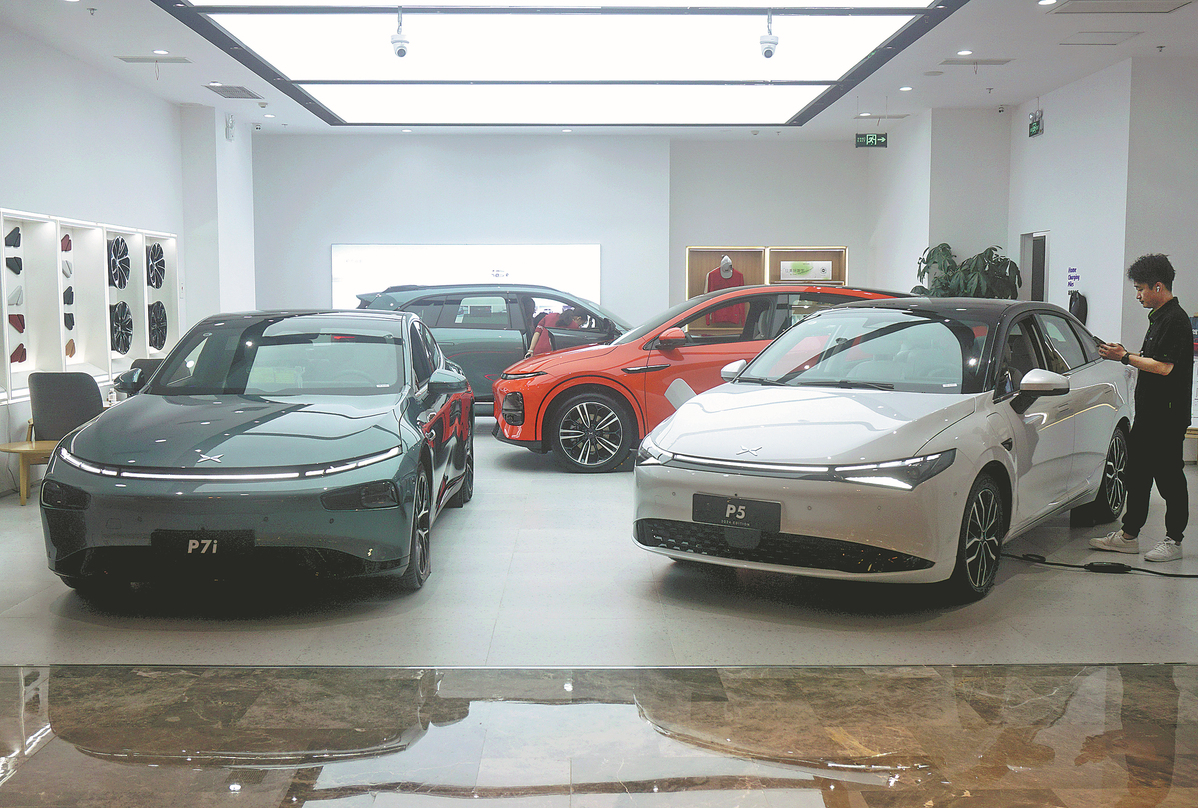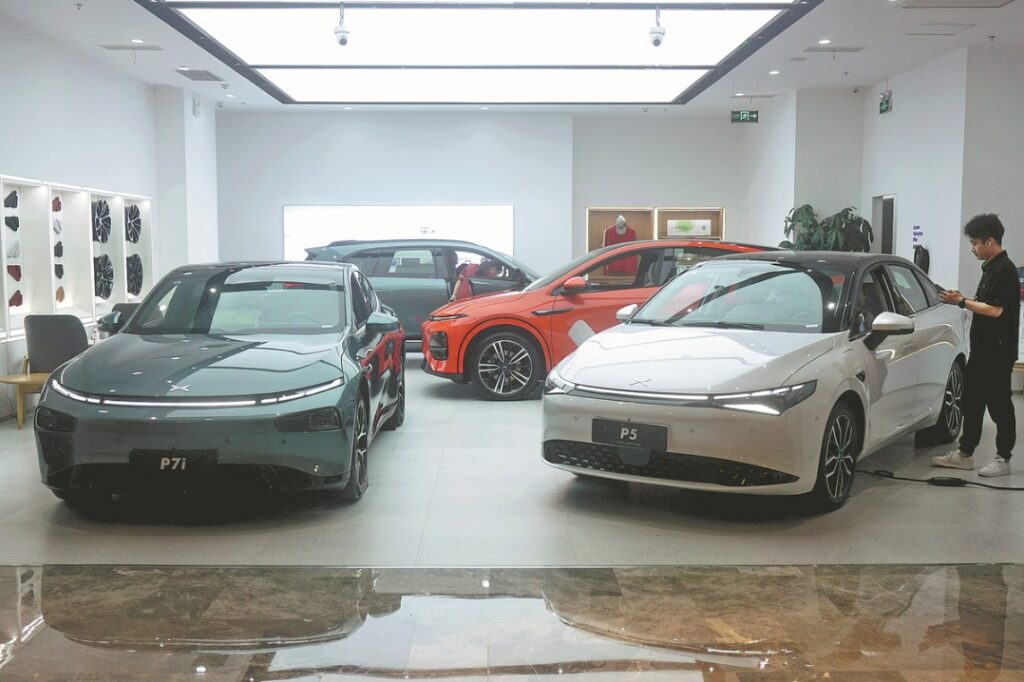
Xpeng's store in Hangzhou, Zhejiang Province displays the P7i, P5 sedan and other models.Longwei/China Daily
Global automakers such as Volkswagen and Stellantis are reaching out to Chinese electric vehicle companies to boost their competitiveness as the electric vehicle sector shifts to electrification.
This shows that the popularity of “Chinese EVs” in both Chinese and overseas markets lies in their know-how, rather than overcapacity or subsidies, which the European Union has criticized.
Volkswagen announced on Wednesday that it is co-developing electrical and electronic architecture with Chinese startup Xpeng, aiming to improve its competitiveness in China's heating EV market.
The architecture, which will be available in 2026, will ensure the rapid expansion of digital services in the Volkswagen brand's China-only vehicles and improve the attractiveness of the German carmaker's products.
Currently, popular new energy vehicle models in China are mainly offered by local Chinese manufacturers such as BYD, as well as startups such as Nio and Xpeng.
“This (partnership) will increase efficiency, optimize our cost structure and accelerate development speed,” said Ralf Brandstetter, Volkswagen's managing director for China.
“High cost effectiveness and fast development pace are critical to our competitiveness in China's dynamic market environment,” he said.
The announcement of the new partnership with Xpeng follows a €2.5 billion ($2.67 billion) investment in China earlier this month.
Volkswagen said the investment will be used to expand its production and innovation base in Hefei, Anhui province.
The new production and development base in Hefei will bring technology to market about 30% faster in the future, the company said.
“Further investment in this site underscores our ambition to quickly expand our local innovation capabilities,” Brandstetter said.
The investment will also be used to prepare two models co-developed with Xpeng for production as part of an agreement signed between the two companies in 2023.
The first model will be a mid-size SUV, with production scheduled to begin in 2026 at Volkswagen Anhui, one of the automaker's newest Chinese joint ventures.
Also last week, Ying Tongyue, chairman of Jaguar Land Rover's Chinese partner Chery Automobile, said two premium European brands had expressed interest in the company's electric vehicle platform.
“One company has signed a contract soon and the other company is in negotiations with us,” Yin said.
According to National Business Daily, the two European brands are likely to be Maserati and Alfa Romeo.
Analysts said it would be more cost-effective and faster to buy an EV platform from a Chinese automaker that has been a leader in the field, rather than developing one from scratch.
Agreements and talks on cooperation with Chinese EV makers stand in stark contrast to accusations by the European Union (EU) and the United States about China's overcapacity in the auto sector.
Ma Yingying, a research associate at the Institute of World Economics and Politics, Chinese Academy of Social Sciences, said China's auto industry continues to improve technology and production efficiency through advances in electrification and intelligence, which will turn into its own advantages.
Ma said that technological advances in new energy vehicles, industrial and supply chain advantages, and innovation and application of intelligence have strengthened the position of China's automobile industry in the global market.
Interest from global automakers in China's EV technology does not start this year. Stellantis, which owns brands from Peugeot and Citroen to Maserati and Alfa Romeo, partnered with Chinese startup Leap Motor in 2023.
Stellantis said it may leverage Leap Motor's innovative and cost-effective EV ecosystem in China to help achieve its electrification goals and explore mutually beneficial synergies.
Europe's car giants are investing more than 50 billion euros in electrification over the next 10 years, with the aim of making all passenger car sales in Europe electric by 2030 and 50% in the United States.
Leapmotor was one of the first companies in the world to implement Cell-to-Chassis technology at scale. A new centrally controlled electrical and electronic architecture provides seamless and efficient connectivity with the core components of smart EVs.
Toyota, the world's largest automaker by sales, has changed its business development in China from “for China” to “together with China.”
The Japanese automaker said it will announce a partnership with a major Chinese technology company at the Beijing Auto Show, which opens on Thursday.
There are also reports that Toyota is partnering with Huawei and Chinese startup Momenta to adopt advanced driver assistance solutions that are common in new cars in China.
Toyota is using Huawei technology in its new Camry sedan sold in China, including an operating system co-developed with the Chinese technology giant.


